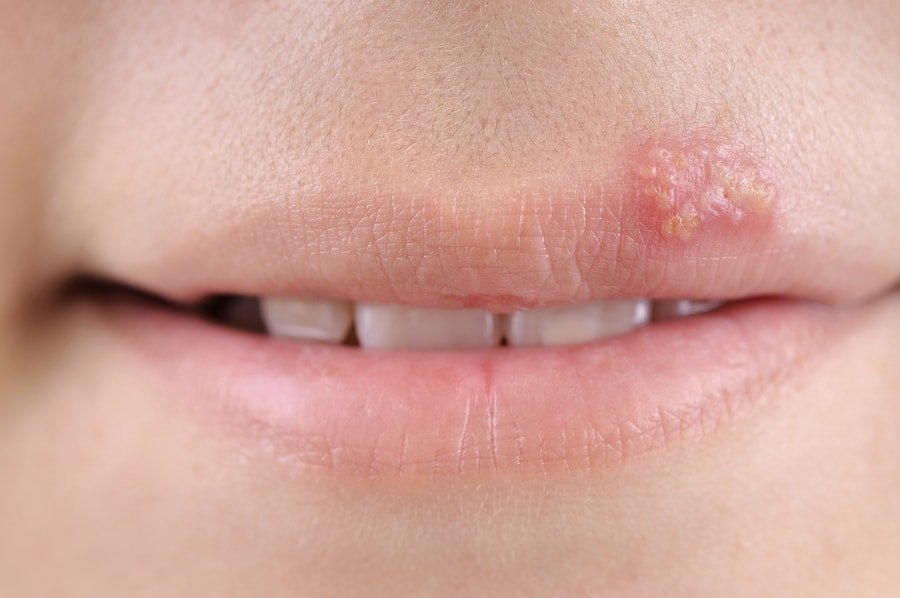
Lysine is an essential amino acid that plays a vital role in the body and is a necessary part of the diet. Find out what lysine is, what are its benefits and side effects, and which foods are great sources of this amino acid.
What Is Lysine?
Lysine is an essential amino acid that plays an important role in the creation of proteins in the body. The human body is unable to produce lysine itself. This means that lysine must come from external sources — primarily food.
Some biological functions of lysine include [1, 2, 3]:
- Serving as a building block for proteins
- Playing an important role in histone modification (which affects gene expression)
- Providing structure to collagen
- Regulation of calcium levels
Lysine, as an oral supplement or lip balm, is often used for treating and preventing cold sores. Some other popular purported health benefits include improving athletic performance, canker sore symptoms, and schizophrenia symptoms.
However, there is a lack of clinical studies to support most of these claims. We’ll dive into the research concerning lysine in the following sections.
Snapshot
Proponents
- May help prevent or treat cold sores
- May help prevent or treat canker sores
- May reduce anxiety
- May reduce schizophrenia symptoms
- May help improve diabetes
Skeptics
- Lack of strong clinical research to support health claims
- Diet usually provides more than enough lysine
- Supplements may cause diarrhea and stomach pain
Purported Health Benefits Of Lysine
Possibly Effective For:
1) Treatment and Prevention of Herpes (Cold Sores)
Herpes labialis, more commonly known as cold sores, are caused by an infection by the herpes simplex virus. There is some evidence that lysine, taken orally, is possibly effective for treating or preventing cold sores.
A number of older clinical trials have found that oral lysine supplements may help prevent the recurrence of cold sores as well as improve the severity and duration of symptoms [4, 5, 6, 7, 8].
According to a more recent pilot study of 30 people, a specific herbal-based product containing lysine and zinc may also reduce the duration of cold sore episodes [9].
However, all of these studies had relatively small sample sizes. In one systematic review looking at various treatments for the prevention of cold sores, the researchers suggest that the evidence supporting lysine is of very low quality [10].
Insufficient Evidence For:
The following purported benefits of lysine are only supported by limited, low-quality clinical studies. There is insufficient evidence to support the use of lysine for any of the uses listed below. Remember to speak with a doctor before taking lysine. It should never be used as a replacement for approved medical therapies.
2) Canker Sores
While they appear similar to cold sores, canker sores do not occur on the surface of the lips and are not contagious. There is also much less research on the effectiveness of lysine for canker sores.
Only one older study suggests that 500 mg of lysine daily may help prevent canker sores [11].
3) Anxiety
A 3-month randomized study performed in communities in Syria found that wheat fortified with lysine may reduce anxiety and stress [12].
According to a randomized placebo-controlled study of 108 healthy Japanese adults, oral supplementation with both lysine and arginine (another essential amino acid) may reduce anxiety and cortisol levels [13].
4) Schizophrenia
A small randomized placebo-controlled study of 10 patients with schizophrenia found that high dose supplementation of lysine at 6 g per day (in combination with conventional antipsychotic medication) may decrease the severity of positive symptoms [14].
Another randomized placebo-controlled trial of 72 schizophrenia patients also examined the effects of high dose (6 g per day) lysine supplements as an add on to conventional treatment. In contrast to the previously mentioned study, researchers found potential improvements to negative and general symptoms, but not for positive symptoms [15].
5) Diabetes
A small study of 8 patients with type 2 diabetes found that oral lysine supplements may lower blood glucose levels [16].
Another pilot study of 77 diabetic patients also found that oral supplementation with lysine may decrease blood glucose levels and improve insulin sensitivity [17].
In addition, a small study of 13 healthy subjects shows that lysine may decrease blood glucose levels while increasing glucagon and insulin levels [18].
6) Muscle Strength
According to a study of 40 healthy men, 8 weeks of a high lysine diet (defined as 80 mg/kg each day) may improve muscle strength compared to a low lysine diet [19].
7) Bone Health
Two studies of 30 and 45 patients with osteoporosis found that dietary supplementation with lysine may improve the absorption of calcium. According to researchers, this may be helpful for those with osteoporosis [3].
8) Pressure Ulcers
Pressure ulcers, also known as bedsores, are caused by prolonged pressure on the skin, usually from staying in one position for too long. This type of ulcer is especially a concern in patients that are hospitalized for long periods of time [20].
A study of 50 hospitalized patients found that a specific cream containing lysine and hyaluronic acid may help reduce the size of ulcers and healing time [20].
Safety of Lysine
Lysine is generally considered possibly safe. Studies have used oral lysine supplements for up to a year without any safety concerns. Topical forms of lysine have only been studied in short-term trials — their long-term safety is unclear [4].
There is also insufficient evidence to determine if lysine supplements are safe to use during pregnancy or breastfeeding.
Side Effects
The most commonly reported side effects of lysine supplementation include stomach pain and diarrhea.
Precautions
Calcium Absorption
There is some evidence that lysine may increase calcium absorption. Those with too much calcium in the blood (hypercalcemia) may need to avoid lysine supplements [3].
Kidney Disease
There is one case report of a person developing chronic renal failure after taking high amounts of lysine over a five-year period [21]
Intolerance to Lysinuric Protein
Lysinuric protein intolerance is a genetic condition that impairs the absorption of amino acids like lysine. Supplementation with lysine in people with this condition may cause diarrhea and stomach cramps [22, 23].
Supplementation
In the following sections, we’ll discuss the common forms and dosages of lysine supplements that are commercially available. Lysine supplements are not approved by the FDA for medical use. Regulations set manufacturing standards for supplements, but that does not guarantee that they are safe or effective. Speak with your doctor before supplementing.
Forms
Lysine is commercially available as capsules, tablets, ointments, lip balms, and as a powder.
Most products refer to lysine as L-lysine, which is the biologically active form of the amino acid.
Dosage
There is currently insufficient evidence to determine what a safe and effective dose of lysine is for specific conditions.
For cold sores, clinical trials have used doses that range from 500 to 3,000 mg total each day [7].
The strength of commercially available oral lysine supplements typically ranges from 500 to 1,000 mg per dose. Manufacturers usually recommend taking 1 to 3 doses each day.
Natural Sources of Lysine
The body is unable to produce lysine, so it is important to get enough lysine in the diet. Luckily, in countries like the U.S., most people get more than enough lysine from meat and vegetable sources [24].
The recommended intake of lysine for adults is 30 mg/kg. According to some studies, most people in the Western world get about 40-180 mg/kg of lysine [24].
Some great sources of lysine include:
- Lean beef and lamb – 3582 mg/100g
- Parmesan cheese – 3306 mg/100g
- Poultry (turkey, chicken) – 3110 mg/100g
- Pork – 2757 mg/100g
- Soya beans and products (tofu, protein powder, flour) – 2634 mg/100g
- Tuna – 2590 mg/100g
- Shrimp – 2172 mg/100g
- Pumpkin seeds – 1386 mg/100g
- Eggs – 912 mg/100g
- White beans – 668 mg/100g [25]
- Other fish (cod, sardine) and shellfish
- Nuts, seeds, eggs, beans, and lentils
- Spirulina and fenugreek seeds [26]



